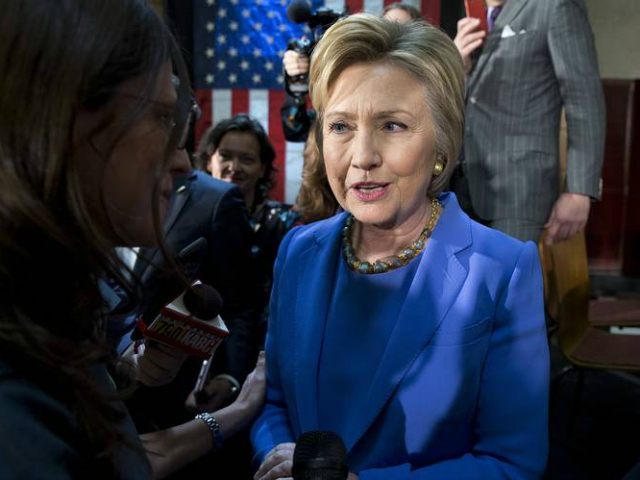Presidential candidate Hillary Clinton joined Muslim Public Affairs Council president Salam Al-Marayti at a panel held by the University of Southern California on Thursday to discuss counterterrorism efforts and outreach to the Muslim community:
Al-Marayati argued it was important to “amplify the moderate voice against ideological extremism that uses religion for legitimacy.”
“ISIS represents cruelty; Islam represents mercy,” he argued. “ISIS represents destructive behavior; Islam says to go and build a civilization. ISIS says we are going to intimidate anyone who disagrees with us, whereas Islam says repel evil with good, so that the one with whom there is some enmity becomes as if he is your closest and warmest friend.”
He said a “healthy partnership” on counterterrorism, where “communities are treated as partners, not as suspects” would be “critical in moving forward.”
Al-Marayati argued that the spread of Muslim extremism in the United States has been greatly exaggerated in the popular imagination.
“We have to understand what has happened in the last 20 years, even before 9/11,” he said:
More Muslims have joined the Marines than have joined international groups. More Muslims are now part of our Homeland Security apparatus — as analysts, as translators, as strategists — than those who go to support foreign groups abroad. More Muslims are involved in saving lives as doctors then they are committing acts of terrorism here.
As NBC News in Los Angeles reported, Clinton used the forum to “bolster her foreign policy credentials while condemning her Republican rivals’ ‘divisive language’ in the aftermath of the terror attacks in Brussels, Belgium, on Tuesday.”
“It’s becoming, in a time where we have so much information that is just swirling around us, in ways that were unimaginable even a decade ago… it’s become harder and harder for moderate, reasonable voices to be heard,” Clinton interjected during Al-Marayati’s remarks.
“Think about it: the way you get eyes, or ears, is to be provocative, even extreme — to say things that are going to draw attention,” she continued. “That’ll get you invited back, or that’ll get you more, you know, responses to whatever it is you’re posting.”
“I don’t think this is a trivial issue, because you hear, as I do all the time, people saying, ‘Well, why don’t American Muslims speak out?’ They do. They do. In many different ways,” said Clinton. “Why aren’t they given platforms, then, for their voices to be heard, at least to counteract the more extreme voices that get an audience anytime they desire?”

COMMENTS
Please let us know if you're having issues with commenting.